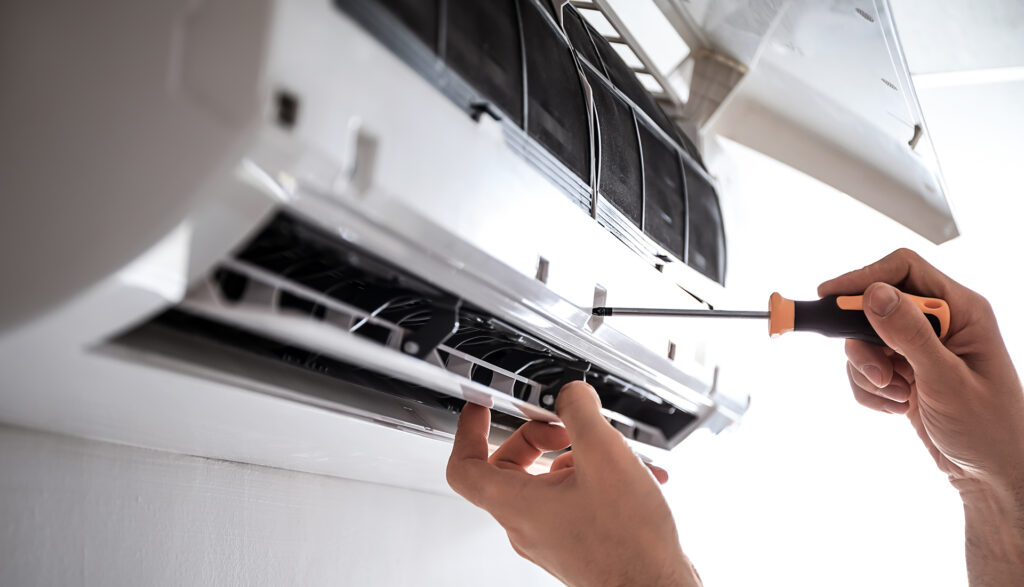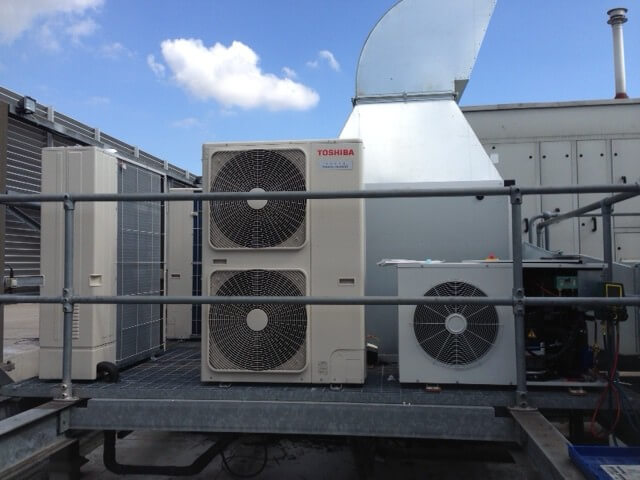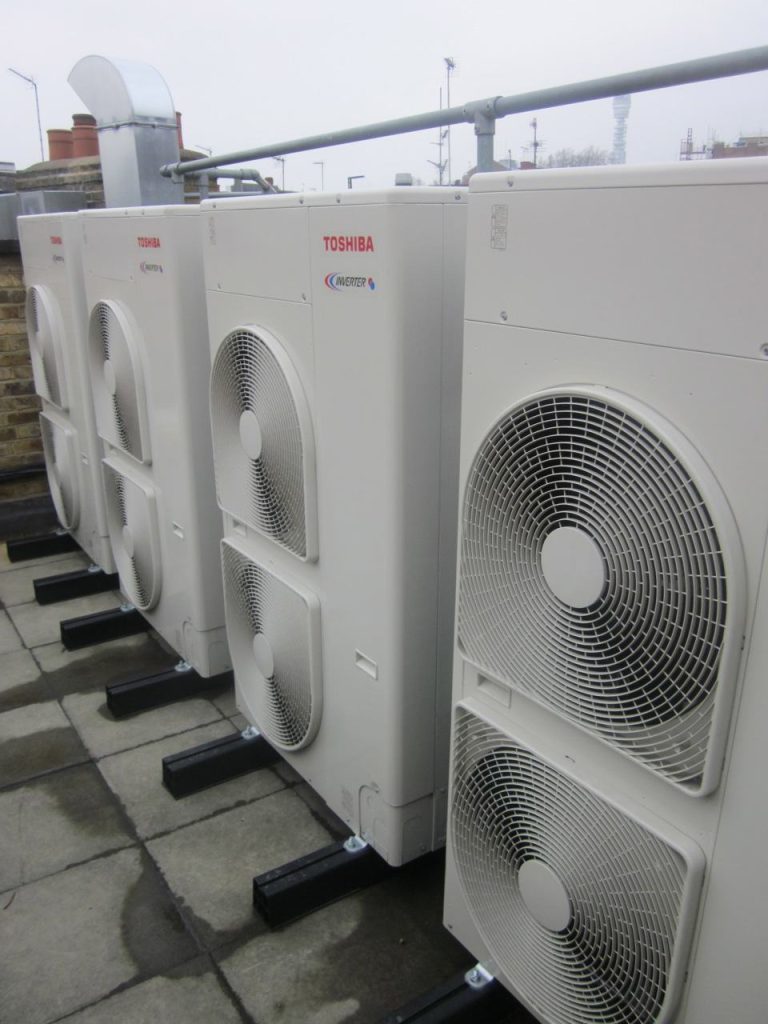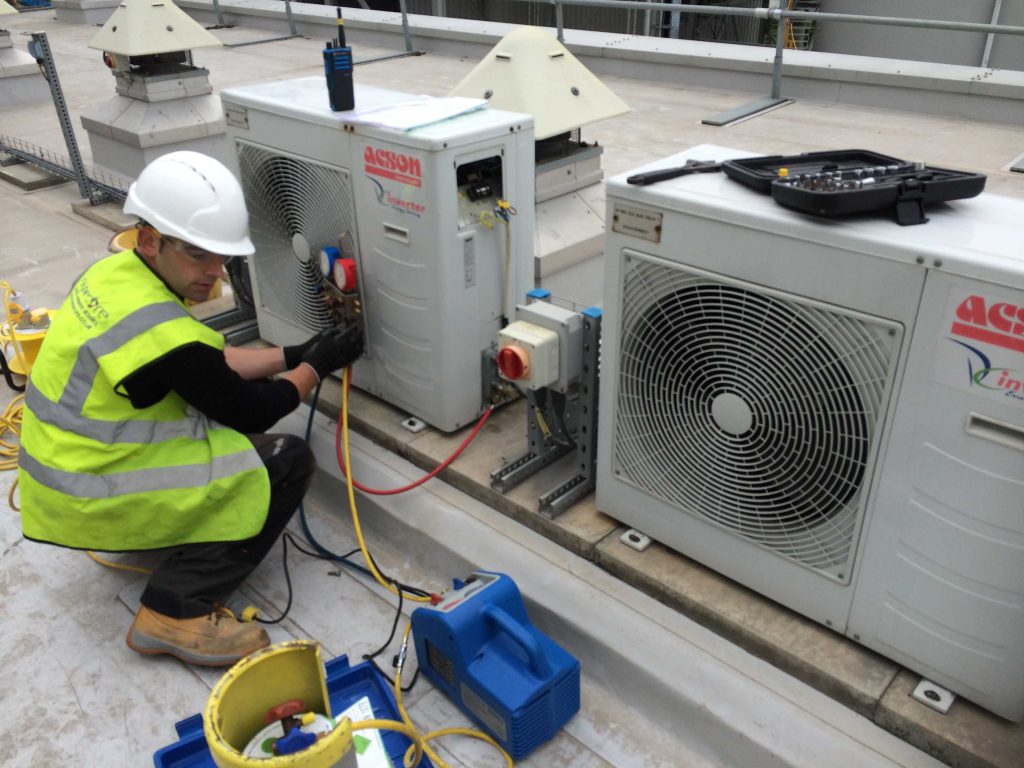How to Prevent Commercial Refrigeration Repairs This Summer
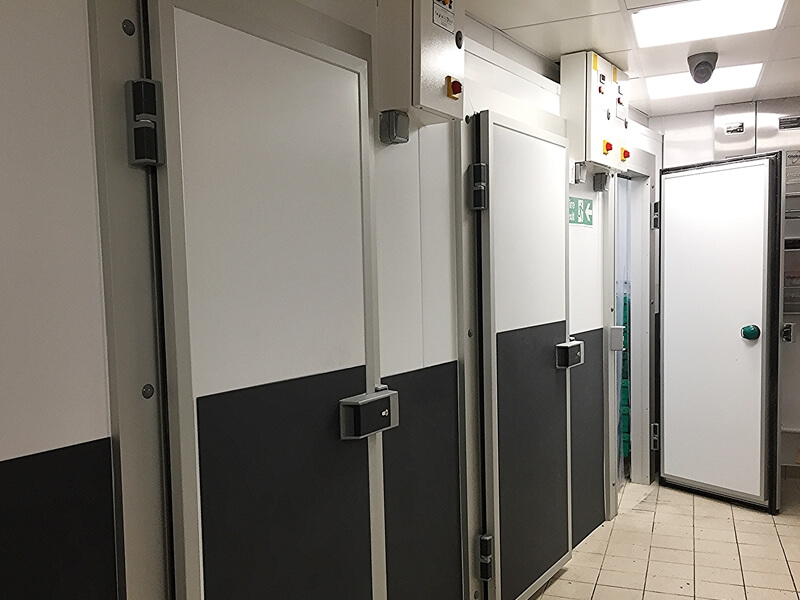
Estimated reading time 11 minutes
To the majority of us refrigeration is something we take for granted. To many businesses including restaurants, fast food outlets, hotels, in fact anywhere that serves food, commercial refrigeration is essential and it's vital that it is always operating efficiently and safely. It's therefore important to understand what can go wrong with your refrigeration equipment.
In this article we will be looking at the kinds of common refrigeration problems a restaurateur or hotelier etc. may face on a day to day basis and how to prevent commercial refrigeration repairs and potential problems during the summer months and beyond.
The Work Horse of Any Hospitality Business
No matter what time of the year, refrigerators and walk in cold rooms are hard working equipment. This is especially true during the summer months when they have to work even harder to maintain a cooler temperature inside when outside temperatures and humidity are high. Refrigerators and cold rooms are pieces of equipment that are very heavily used in busy food places and can be constantly opened and closed throughout the working day resulting in a large amount of day to day wear and tear.
Given the large amount of use a refrigerator or cold room can go through owners need to be conscious of some of the things that can lead to refrigeration issues that can then develop into faults. Being aware of these potential fault developing actions can help to avoid potential issues and help to prevent refrigeration repairs.
Actions That May Cause You to Need Refrigeration Repairs
There are many things you may do to your refrigeration equipment that may result in it developing a problem. Here are a few of them:
Overloading
We are all guilty of trying to over utilise the space in our refrigerators. What many people do not understand is that by over filling you can block the vents which makes it difficult for air to circulate which results in your refrigerator motor and condenser having to work much harder than they would normally need to do, thus putting strain on them. This can lead to excess wear and tear, and ultimately to equipment failure.
Lack of Cleaning
If you do not keep your refrigerator clean it can lead to a number of issues.
Given that your fridge is used to store food, cleanliness should be a major consideration. If you don't have a good cleaning regime then you run the risk of food contamination, bacterial growth and food poisoning.
A lack of cleaning can also result in clogged filters and a blocked fridge drain hole. The drain hole is there to catch any moisture which collects in a fridge, especially any condensation which builds up on the back wall of the refrigerator. If this hole is blocked, water can pool on the bottom shelf which can impact the quality of any foods stored there. It also creates an environment which encourages mould to grow.
Doors Being Left Open
In the case of a refrigerator or freezer keeping the doors closed is vital to its efficient running. It's also clearly important in helping to maintain the low temperature needed to keep food fresh.
When you open a refrigerator this drops the temperature by 5-10°C. You push the refrigerator to have to work harder to try to keep the temperature somewhere between 1.7 and 3.3°C, as the cold air that is keeping your food fresh escapes and is replaced by warm air from the room. Your refrigerator's compressor has to then drive the warm air out and bring the temperature back to normal. It's interesting to note that the Home Energy Magazine states that open refrigerator doors account for 7% of a refrigerators total energy use! The Institute of Food and Agricultural Sciences at the University of Florida states that "Being careless with opening and closing your fridge door wastes 50 to 120kWh a year." If you leave a refrigerator door open for long periods (rather than the usual opening and closing through general use) you will be wasting far more electricity and putting a great deal of extra strain on the refrigerator motor and condenser.
Unplugging or Turning Off Power to a Refrigerator
In a busy kitchen, where there is a lack of power points, fridges and freezers can be turned off by accident and remain turned off when staff forget to plug them back in.
Fridges and freezers can continue to work for a while when power is turned off. According to the FDA a refrigerator will keep food cold for about 4 hours if it is unopened. A full freezer will keep the temperature for approximately 48 hours (24 hours if it is half full) if the door remains closed.
Clearly if the power is disrupted for a longer period of time this can lead to food spoilage.
Incorrect Positioning of a Refrigerator
Having too little space around your refrigerator can greatly impact on the performance and life of your fridge as it can impede air flow.
It's also important to avoid positioning a refrigerator in direct sunlight or in locations where the temperature may be higher e.g. beside an oven or a dishwasher etc. If the surrounding temperature is too high the refrigerator may not cool down properly and frost or condensation may form as a result of too high a humidity. Both of these circumstances may affect the life and performance of the fridge.
It's also important to ensure your refrigerator is installed on an even floor surface. If the floor is uneven this may prevent the doors from opening or closing properly.
Cooling Piping Hot Food
If food is not going to be used straight away, we are told that it's important to refrigerate it as soon as possible, to prevent the growth of bacteria. The Foods Standard Agency tells us: "Bacteria usually grow in the 'Danger Zone' between 8°C and 60°C. Below 8°C, growth is stopped or significantly slowed down. Above 60°C the bacteria start to die. Time and temperature are both important because proteins need to be heated up for a long enough time for them all to be broken down."
However placing piping hot food in a refrigerator can cause condensation within the refrigerator and cause the motor to have to work harder to reduce the overall temperature inside the fridge. Instead best practice is to allow hot food to cool down on the counter for up to a couple of hours before placing it in the fridge.
Common Refrigeration Equipment Problems That Can Arise
We've discussed some of the common situations which may result in your refrigerator developing a fault. Below we'll talk about some of the warning signs that can flag potential refrigeration issues so you know what to look out for.
Unable To Maintain Temperature
As we've mentioned before, a refrigerator should maintain a temperature between 1.7 and 3.3°C. At this temperature foodstuffs within a fridge should be cold to the touch. You can also use a thermometer to get a more accurate reading.
If you discover that food isn't as cold as you'd expect, it may be that your refrigerator is having an issue in maintaining the temperature that has been set. A temperature issue could arise from e.g. a malfunctioning compressor, a dirty condenser and evaporator coils, dirty fans, inadequate air flow inside the refrigerator, seal deterioration on the doors, a leak, and issues with the motor or a problem with the thermostat.
It could also be an effect of the equipment doors being left open for too long resulting in the refrigerator trying to cool not only the inside of itself but also the outside room temperature too which causes a strain on the refrigerator which leads to it eventually becoming inefficient.
Abnormal Noises or Equipment Running Loudly
It's not uncommon for refrigeration equipment to make noise. At home you'll have heard the noise coming from your refrigerator increase when the condenser fan motor, evaporator motor and the compressor work together to maintain the refrigerator temperature. However abnormal noise levels or unfamiliar sounds may be signs of specific problems e.g. a compressor failure or a fan motor that has become misaligned. A machine which is in good working condition shouldn't develop unfamiliar sounds or make extreme noises when it's operating correctly.
Ice, Frost or Condensation Build Up
Although you expect your refrigerator to keep items chilled you should not expect to find ice, frost or condensation build up in your commercial refrigeration equipment. A common cause for ice build up can be due to faulty door seals or where door hinges are loose or not properly aligned/attached. It can also occur if the refrigerator is too close to the wall which can result in poor airflow. A blocked defrost drain or leak in the system can also cause these issues.
Strange Smells
An unpleasant smell from your refrigerator could be down to a number of things. Your first thought may be that food itself has spoilt, however it may not be the food in the fridge that is causing the problem; it might be the fridge itself.
The smell could be coming from a damaged filter or a build up of food debris or water inside the fridge's drainage system. If you can smell burning one of the places you should check is the condenser coils at the back of the fridge to see if there is an accumulation of dust and dirt. If this is not the issue then there could be a problem with the fan or another of the refrigerator's electrical system. If the smell is chemical in nature it may be an indicator that your refrigerator is leaking gases.
Wet Floors
If you find water beneath your refrigerator or water on the floor of your walk-in cold room this could indicate an issue. Small leaks are usually the result of damaged seals. Water leaks in your cold room could also lead to mould and mildew.
Refrigerator Fails to Run at All
If your refrigerator has broken down completely it could be any number of reasons.
A new refrigerator may have problems if it is not kept upright when being transported. If a refrigerator is transported laying down lubricant can escape from the compressor and enter the cooling pipes. If you then turn on the equipment without allowing the lubricant to settle in the compressor it can cause damage and your fridge may fail to even power up.
On an older machine, accumulated dust in the compressor may cause it to have to have to work harder, resulting in stress on the system which could ultimately lead it to it failing. A faulty motor or compressor or insufficient current could also be one of the many the culprits.
Being Proactive to Avoid Refrigeration Repairs
There are proactive steps you can take to help ensure that your refrigerator or walk-in cold room runs effectively and efficiently. A simple way to do this is to have a scheduled maintenance check. Regular maintenance can play a very important role in detecting issues early on and acting on them to prevent equipment breakdown, problems occurring and ultimately avoiding refrigeration repairs.
Having an experienced company maintaining your refrigeration equipment ensures that your equipment is being serviced and maintained by experienced engineers who can troubleshoot and diagnose problems quickly, saving your time and money.
Synecore's Commercial Refrigeration Maintenance Packages Help Prevent Refrigeration Repairs
Synecore work hard to maintain your refrigeration equipment and proactively prevent refrigeration repairs. We maintain and service all commercial refrigeration equipment on your premises to keep your business running efficiently. This includes everything from chest fridges/freezers, under-counter fridges/freezers, bench fridges/freezers, sushi/display fridges, tall fridges/freezers, walk in cold rooms, walk in freezers to ice machines, cellar cooling systems, beer stores, blast chillers, salad bars and critical refrigeration plant.
Synecore provide commercial refrigeration maintenance and service packages individually tailored to your business. We will carry out a site survey to determine what refrigeration equipment you own so that we can be sure we are giving you the right support for those brands. Once we have completed the assessment we will recommend a schedule of site maintenance visits. This may be once a year or every few months depending on your equipment. Our in-house service department will call in advance to book in your scheduled visit and a qualified refrigeration engineer will visit to carry out the maintenance on your equipment.
We work with clients throughout Kent, London and the UK. Contact Synecore for your refrigeration repairs, installation, service and maintenance or to discuss your requirements and to arrange your free no obligation quote.
